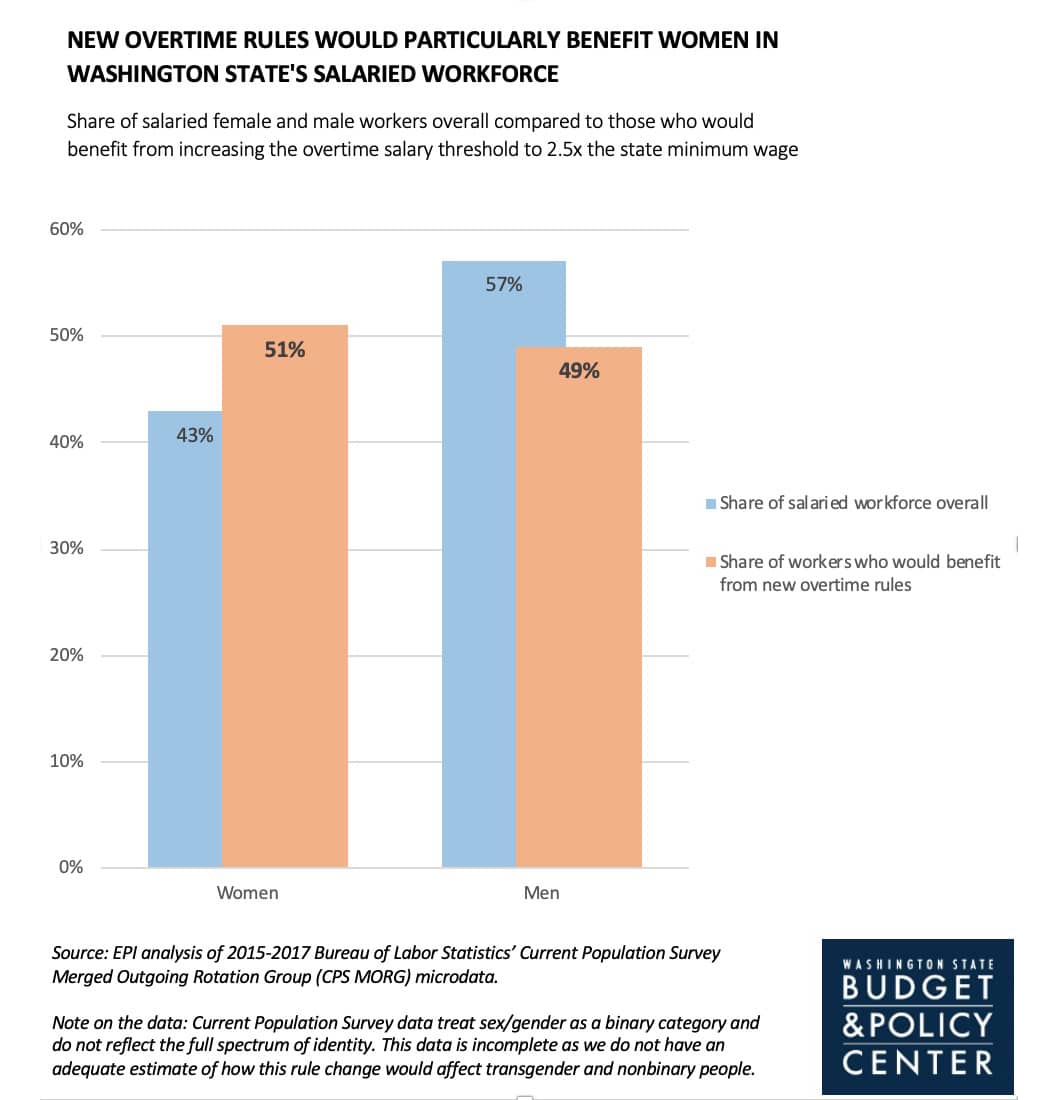We all want to live in a state where working people are fairly compensated for the hours they put in on the job, have the ability to balance work with their personal lives, and have a chance to get ahead. Governor Inslee and the Washington State Department of Labor & Industries have an opportunity to move us closer to this vision by modernizing our state’s overtime rules – a key labor protection for working people in our state.
Overtime protections are supposed to ensure that workers receive pay 1.5 times their normal rate when they work more than 40 hours in a week. Yet currently, more than 400,000 people in Washington are at risk of not being adequately compensated for their overtime hours, all because state leaders have not updated the rule that determines who is eligible for overtime protections in more than 40 years1. These include low- and moderate-income workers with little bargaining power, like frontline supervisors in the fast food and retail industries, paralegals, and office managers. These and many other workers have been left vulnerable to employers who can effectively get their employees’ time and money for free.
Here’s the problem: Employers are not legally required to pay salaried workers overtime pay if they earn above a certain salary threshold and work in bona fide executive, administrative, or professional jobs. But in Washington state, the overtime salary threshold has become so eroded by inflation that it falls below what a full-time minimum wage worker would be paid in our state. What’s more, the “executive, administrative, and professional” (EAP) duties tests are imprecise and out of sync with the modern workplace, leaving room for workers to be improperly classified and denied overtime protections.
Too many Washington workers’ earnings have stagnated even as they’ve contributed to substantial productivity growth in recent decades. Here’s why it’s time to update their overtime rules:
- More than 400,000 workers in Washington would benefit if the salary threshold were raised to 2.5 times the state minimum wage in 20202. Of these, slightly less than half are employees that would gain access to overtime pay, and slightly more than half would benefit from decreased risk of being wrongly misclassified as EAP.
- Expanded overtime protections would broaden access to financial security and better work-family balance for many people in our state. Even as lower-income employees work hard to move up in their jobs – for example, securing a promotion from an hourly cook to a salaried floor manager at a fast food restaurant – ineligibility for overtime pay can keep their hourly wage low as they’re expected to work ever-increasing hours. Overtime pay would mean would mean more money in the pockets of working people or valuable time back they could spend with their families and in their communities.
- Raising the overtime salary threshold would strengthen labor protections for Washingtonians across gender, race, and ethnicity – and women and people of color would experience a particular benefit3. People of color and women are too often shut out of higher-wage jobs because of persistent employment discrimination, occupational segregation, and barriers to networks and other resources that connect people with good jobs. Due in part to their overrepresentation in low- and moderate-income positions, women and Latinx workers in particular are estimated to make up a slightly larger relative share of workers who would benefit from an updated overtime rule4,5. The chart below depicts the larger relative impact for women.
Click on image to enlarge.
Now is the time for Governor Inslee to act boldly on behalf of Washington’s workers. No one should be made to work without getting paid for it, and people in our state need a change to help bring their work, lives, and families back into balance.

